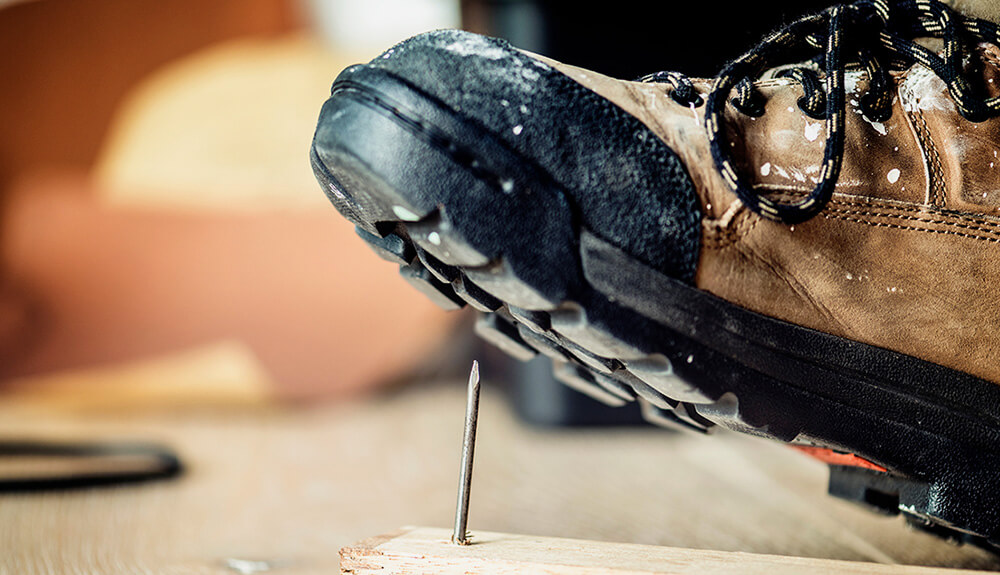EN ISO 20344 Protective Footwear Abrasion Resistance Testing
The European standard EN ISO 20344 specifies requirements and test methods for protective footwear, including abrasion resistance. This service ensures that the footwear meets stringent safety standards to protect workers from hazards in industrial environments.
Protective footwear is crucial in industries where employees face risks such as sharp objects, heavy machinery, or corrosive substances. Compliance with EN ISO 20344 helps organizations maintain a safe working environment and avoid legal liabilities. This standard focuses on the protection provided by the sole of the footwear against abrasion, which can occur during prolonged use.
The test for abrasion resistance involves subjecting the sole to mechanical wear using a specified apparatus. The specimen is placed under controlled conditions where it undergoes continuous friction until either the material fails or a predetermined number of cycles are completed. This process simulates real-world usage and provides insights into the durability of the protective footwear.
The abrasion resistance test is critical for industries such as manufacturing, construction, and logistics, where employees frequently engage in tasks that can expose them to abrasive surfaces. By ensuring compliance with EN ISO 20344, organizations not only meet regulatory requirements but also enhance employee safety and satisfaction.
Our laboratory follows the standard rigorously, employing experienced technicians and state-of-the-art equipment to conduct these tests accurately. The results are reported comprehensively, providing detailed insights into the abrasion resistance of the footwear tested. This data is invaluable for quality managers, compliance officers, R&D engineers, and procurement teams looking to ensure product safety and reliability.
In addition to EN ISO 20344, our laboratory also offers other tests relevant to protective footwear, such as impact resistance testing (EN ISO 20345) and electrical insulation testing. These complementary services provide a holistic approach to ensuring the safety of workers in various industrial sectors.
By investing in these tests, organizations can demonstrate their commitment to worker safety and compliance with international standards. This not only enhances reputation but also contributes to a safer working environment, reducing the risk of accidents and injuries.
Why It Matters
The importance of protecting workers from hazards cannot be overstated, especially in sectors where physical safety is paramount. The abrasion resistance test for protective footwear ensures that the soles can withstand the wear and tear associated with industrial environments.
Abrasions are a common risk factor in industries such as manufacturing, construction, and logistics. Workers frequently encounter rough surfaces, sharp objects, and abrasive materials, which can damage the sole of their footwear over time. This damage not only reduces the effectiveness of the protective features but also increases the likelihood of injuries.
Compliance with EN ISO 20344 is essential for several reasons:
- Regulatory Compliance: Meeting international standards ensures that products meet legal requirements and industry best practices.
- Employee Safety: Safe footwear reduces the risk of slips, trips, and falls, as well as preventing injuries from sharp objects or abrasive surfaces.
- Corporate Reputation: Demonstrating a commitment to worker safety enhances an organization's reputation and trustworthiness.
- Risk Reduction: By identifying potential weaknesses in the footwear, organizations can take proactive measures to improve product design and performance.
In summary, the abrasion resistance test is a critical component of ensuring worker safety. It plays a vital role in protecting employees from hazards and reducing risks associated with prolonged use.
Scope and Methodology
The scope of EN ISO 20344 covers protective footwear designed to protect the wearer's feet against various hazards. This includes abrasion resistance, which is one of several important performance characteristics tested.
The test method for abrasion resistance involves subjecting the sole of the footwear to mechanical wear using an apparatus known as a sandpaper wheel test rig. The specimen is placed in this rig and subjected to continuous friction until either the material fails or a predetermined number of cycles are completed.
According to EN ISO 20344, the test rig should comply with the specifications outlined in ISO 6508-1:2017. The specimen is typically a square piece of the sole material measuring 150 mm by 150 mm and 5 mm thick. The test rig applies a specified load to the specimen, which then rotates at a constant speed against a sandpaper wheel.
The abrasion resistance is measured in terms of the mass loss of the specimen after the test. This value indicates how well the sole material resists wear and tear. Acceptance criteria are established based on this measurement, ensuring that the footwear meets the required standards for industrial use.
Our laboratory adheres strictly to these specifications, using high-precision equipment and experienced personnel to ensure accurate and reliable test results. This precision is crucial in providing data that can inform product improvements and enhance worker safety.





